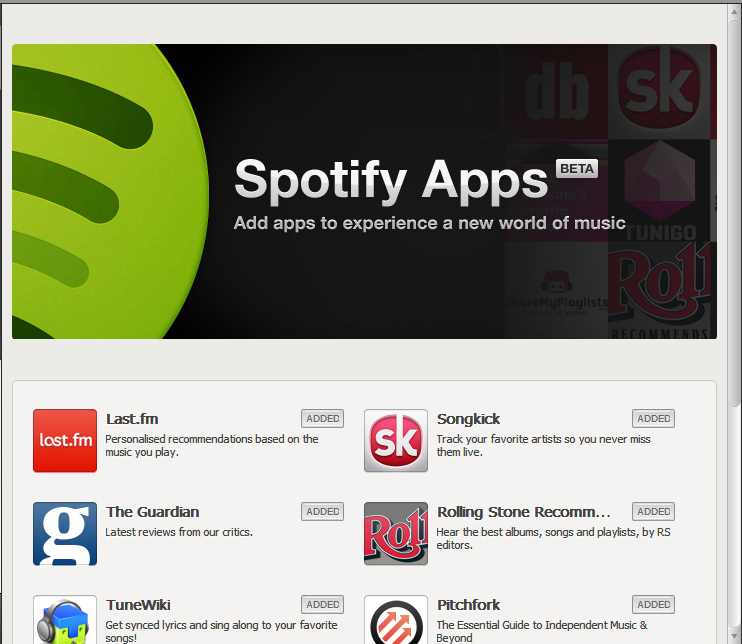Spotify: superb, or superbly cynical?
iTunes owns downloads, but can Spotify own streams?

Spotify's new platform API is an enormously clever idea. The platform enables developers to create apps that plug into the Spotify player, so for example you might have a lyrics app, a magazine app or an animation app to make your music that bit more interesting.
I'm old enough to remember the days when you'd write a list of that week's NME and Melody Maker recommendations and run down to Woolies to buy the records, so the thought of Spotify partnerships with the likes of Rolling Stone, The Guardian and Pitchfork to recommend great music is really quite appealing.
Then again, the thought of an enormous company getting third parties to plug the holes in its product and provide it with content for free - developers can't charge for apps - strikes me as quite breathtakingly cynical.
While app developers will benefit from a spike in traffic, Spotify gets much more from the relationship. Each new app brings the streaming service one step closer to world domination.
I think Spotify's going to dominate streaming music like iTunes dominates downloads - but I'm not sure everybody's going to be happy about that.
Spokes in the Spotify wheel
I worry that by throwing their lot in with Spotify, app developers are effectively throwing in the towel: instead of being destinations in their own right they're becoming spokes in Spotify's wheel. That's something many artists - or at least, their managers - have started to feel, and they're not happy about it.
Recent releases from Coldplay, Adele, Snow Patrol and Tom Waits weren't made available on the service, and last month a distributor for some 200 dance labels quit Spotify over concerns that it encouraged users to think of music as a free product.
Sign up for breaking news, reviews, opinion, top tech deals, and more.
Spotify rightly argues that receiving streaming royalties, small as they may be, is much better than having people pirate your music, but artists worry that many Spotify users see the service as a free record collection - that is, they'll listen forever, for free, instead of buying any records.
That's certainly the concern of Coldplay et al, whose managers believe that lost sales are lost sales no matter how legal the music may be.
They're probably right. As Spotify grows, that means streaming royalties will account for a bigger percentage of artists' income - which is fine if you're Rihanna and generating millions of streaming plays, but not so good if you're an obscure or up-and-coming act whose stadium years, if they arrive at all, are decades away.
Better than piracy? Yes, but only in the sense that being shot to death is better than being boiled alive.

Contributor
Writer, broadcaster, musician and kitchen gadget obsessive Carrie Marshall has been writing about tech since 1998, contributing sage advice and odd opinions to all kinds of magazines and websites as well as writing more than twenty books. Her latest, a love letter to music titled Small Town Joy, is on sale now. She is the singer in spectacularly obscure Glaswegian rock band Unquiet Mind.